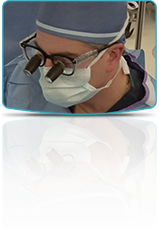What are the risks of surgery?
No surgical procedure is risk free. Although cosmetic surgery is an elective procedure, every patient must understand that these procedures are real surgical operations that involve the potential for complications. However, most cosmetic surgery procedures are categorized as low risk when performed in an accredited facility, by a surgeon with the appropriate training and qualifications.
Surgical risks can be categorized broadly into general risks and specific risks. General risks are the potential complications that are common to all surgical procedures, such as infection, bleeding, wound healing problems, and anesthetic complications. Specific risks are the potential complications that are unique to a specific operation. A more detailed discussion about the specific and general risks of your surgery will be carried out during your surgical consultation.
Although complications are uncommon, they can delay or affect the final result. An appropriately trained surgeon not only knows how to perform a given operation, but also knows how to manage any complications that may arise from it. Fortunately, when complications do occur, additional surgery is rarely required.
The risk of complications can be minimized with a combination of the proper knowledge, skill, sound surgical practices and by closely following your surgeon’s instructions on follow-up care during the recovery period. Cessation of smoking is strongly recommended and may be compulsory prior to certain procedures.
Click here to learn more about Dr. Kimmel and his training and credentials or to learn more about why it is important to choose a board certified plastic surgeon









 THE OFFICE
THE OFFICE